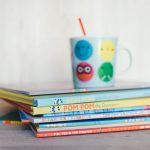Your child learns to talk through play and interactions with other people. The following are three simple strategies to use when you are talking or playing with your child to boost their vocabulary development. Your child’s vocabulary development is super important because it is linked to your child’s reading abilities later in big school.
Less questions more comments!
When speaking to another adult we want to hear what the other person thinks so we ask lots of questions. As a result, it is natural for us to want to ask children lots of questions because we want to hear them speak and use their words. However, as children are still only learning to talk, asking lots of questions can make them feel frustrated as they may not have the words yet to respond.
Think about it, if you were learning a new language and somebody was asking you lots of questions, you would find it hard to think of the words to answer and this would be quiet frustrating.
So how do we match our conversation style to the language abilities of a child? It is very simple, comment on what they are doing. When you are commenting your child can hear lots of new words, by hearing these words they can begin to learn what they mean and eventually learn to say them. When you are commenting about what your child is doing, it is really important to follow your child’s lead. Watch what your child is doing, looking at or reaching for and talk about it. By doing this you are providing the words for what your child is doing and is interested in. This will really help your child to learn what these words mean. Leave lots of pauses between each comment and you may find your child will start to fill them in using the words they learned from you!

Expanding on what your child says
Expanding on what your child says is another simple but very effective strategy for building your child’s vocabulary. Expand on what your child is saying by repeating back what your child says and add another word to it. For example, if your child says ‘juice’ you could say ‘more juice’, ‘orange juice’, ‘juice please’. For the word ‘car’ you could say ‘he is driving the car’, ‘red car’, ‘big car’ and by doing this you are showing your child how words can be put together to make a short sentence. Your child will soon begin to join to words together because they will have learned it from you!
When deciding how many words to add on, the idea is whatever stage your child is at, you are going to show them just one step further. For example:
- Child says ‘teddy’ – you expand by saying ‘brown teddy’/’cuddly teddy’/ ‘hug teddy’/ ‘small teddy’
- Child says ‘teddy drinking’- you expand by saying ‘teddy is drinking milk’
- Child says ‘teddy is sleeping’- you expand by saying ‘teddy is sleeping in bed’

Modelling
Children learn words and how to pronounce them correctly from what they hear around them. Parents are young children’s best teachers. It is important that when a child makes a mistake that you say the word back to them the right way so that they can hear how to say it properly. There is no need to ask your child to repeat the word as this can make them feel frustrated. Hearing how to say it the right way is enough, with time they will be able to do it themselves. This is called modelling.
How to do it?
- Repeat the words back to your child in a clear way- child says: ‘look a gog’ adult says ‘yes it’s a dog’
- Emphasise the sounds or words your child finds difficult- ‘yes it’s a dog’
- Model the correct word for them three or four times after they make a mistake:
- Child says: I like his punny face
- Parent says: I like his funny face too
It’s a really funny face
A funny face. Do you know what the guy with the funny face is called? - Child says: ‘swimming fish, big fish’
- Parent says: Yes, the big fish is swimming
The big fish is swimming in the river
Look, the big fish is swimming away!
- By doing this you child heard the right way to say the word 3 times
- This means the flow of conversation is still natural and there is no correcting, it is best not to get your child to say the word again.
- They most likely will not anyway.
Article supplied by Little Voices helping little people learn to talk.





